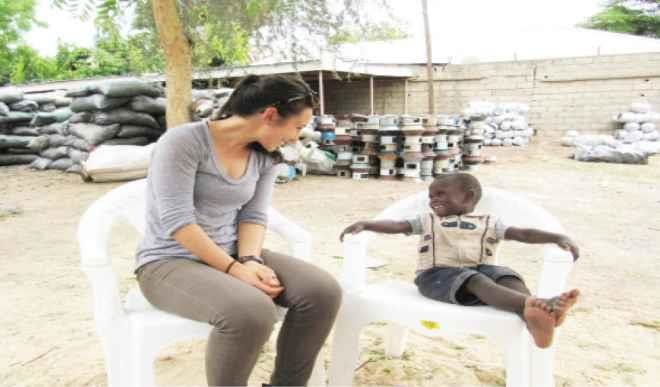Writing on women and Boko Haram was energizing, exhausting – Hilary Matfess
Bookshelf: What brought you to Nigeria? What did your research involve? Hilary Matfess: While getting my Master’s degree at SAIS, I worked on the Nigeria Social Violence Dataset with Dr. Peter Lewis. This project was my introduction to Nigeria. Since my first trip to Nigeria in 2014, in addition to contributing to that project, I […]


Bookshelf: What brought you to Nigeria? What did your research involve?
Hilary Matfess: While getting my Master’s degree at SAIS, I worked on the Nigeria Social Violence Dataset with Dr. Peter Lewis. This project was my introduction to Nigeria. Since my first trip to Nigeria in 2014, in addition to contributing to that project, I began to develop my own research agenda in Nigeria focused on Boko Haram, counterinsurgency and gender. Over the course of my research, I have worked as a freelance journalist, a research fellow with CDD, and a consultant. My work has given me the opportunity to travel to Borno, Yobe, and Adamawa states to conduct interviews with government officials, IDPs, host communities and vigilantes.
Bookshelf: Did you have any firsthand experience of raids or attacks while in Maiduguri?
Matfess: No, I’ve been fortunate that there haven’t been attacks on the city when I’ve been there.
Bookshelf: What was it like documenting your experiences in your book?
Matfess: It’s easy for people to forget that so many of those affected by this insurgency are teenagers or children. Listening to these people (especially the women and girls) describe the difficulties that they face and express their commitment to rebuilding their communities and restarting their lives is both inspiring and gut-wrenching.
You have presented some women as supporters of Boko Haram who were willing to sacrifice themselves as suicide bombers. Would say that this is a true representation of their circumstances?
I’ve written extensively about this. The division between person-borne IEDs and suicide bombers is an important one to make – according to research that I’ve done, some women do volunteer to be suicide bombers. However, the children deployed by Boko Haram as bombers cannot be said to be ‘suicide bombers,’ given that they’re too young to consent.
Bookshelf: At what point did you decide to write the book?
Matfess: I pitched the book to Zed in the spring of 2016.
Bookshelf: How long did it take to write?
Matfess: That’s tough to say. The actual writing took about four months, but editing and revising took a long time. The data collection itself took years.
Bookshelf: Did writing this book energize or exhaust you?
Matfess: Both! The subject is fascinating and I’m honoured to be in the position to amplify the voices of women and girls in North East Nigeria – but the rounds of copy-edits can be draining.
Bookshelf: What kind of emotions did you feel writing it? What was the most difficult part of writing this book?
Matfess: Reviewing my notes while writing the book often brought back warm memories of the amazing women that I met while conducting my research, but often left me feeling frustrated that there’s not a greater sense of urgency in the international community to get these women the support that they need and deserve to improve their lives.
Bookshelf: What are misconceptions about the Boko Haram crisis that your book clarifies or sheds more light on?
Matfess: I’m often frustrated by the portrayal of Boko Haram as unthinking or nihilistic. While the group’s violence is deplorable and must be condemned, the fact that people have been drawn to such a group is an indictment of aspects of the political system in the region. I hope that this book helps illustrate how structural violence against women in society in North East Nigeria helped facilitate recruitment into Boko Haram. I also hope that the book facilitates the sorts of reforms that will empower women and make possible a more peaceful and inclusive future.
